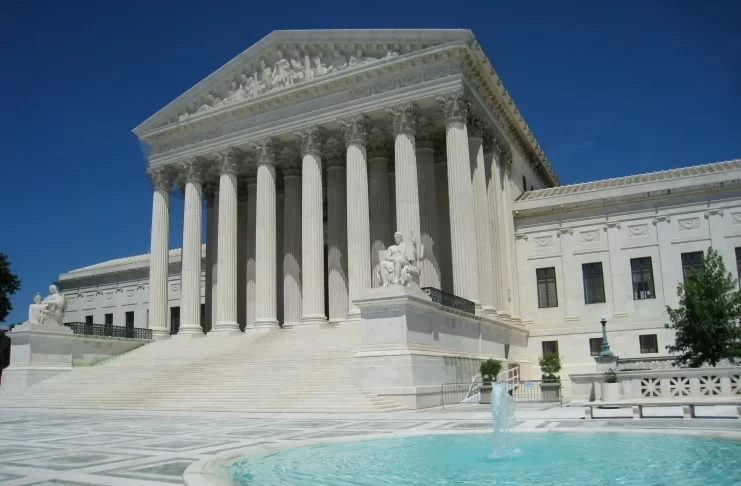In a bow to pressure from Congress and the general public and an admission that it had a genuine ethics problem on its hands, the U.S. Supreme Court adopted an official code of conduct.
While such a code should have been in place long ago, it's better to have one now than not at all.
What's inside the document? A lot of things that already applied to lower court judges. Or so the worthies take great pains to tell us:
For the most part these rules and principles are not new: The Court has long had the equivalent of common law ethics rules, that is, a body of rules derived from a variety of sources, including statutory provisions, the code that applies to other members of the federal judiciary, ethics advisory opinions issued by the Judicial Conference Committee on Codes of Conduct, and historic practice.
Sure it does. Which makes what immediately follows rather amusing:
The absence of a Code, however, has led in recent years to the misunderstanding that the Justices of this Court, unlike all other jurists in this country, regard themselves as unrestricted by any ethics rules. To dispel this misunderstanding, we are issuing this Code, which largely represents a codification of principles that we have long regarded as governing our conduct.
In other words, this is a sop to the critics who didn't like how we conducted ourselves without a written code. And we swear, those luxury trips, loans, and gifts were absolutely, positively above board, totally legal, and in no way intended to curry favor.
But let's give the justices a dollop of approval for putting their code in writing. As with all such documents, it's only as good as those who enforce it. And who will enforce this written code of conduct is unclear…which means it's very likely the justices will be policing themselves.
What could possibly go wrong with that?
All of this brings us back to the root of the problem with members of the federal judiciary as a whole: they serve for what are effectively life terms in office. They can be impeached and removed for assorted crimes and misdemeanors. But barring illegal behavior, they can sit on the bench long after their sell-by date.
If we genuinely want to curb the all-too-human urge of life-long officeholders to treat their positions as property, and themselves as beyond the law, then we should impose term limits on them all.
John Adams wrote that annual legislative elections were essential to the defense of liberty, arguing that such regular brushes with accountability “will teach them the great political virtues of humility, patience, and moderation, without which every man in power becomes a ravenous beast of prey.”
The same can be said of federal judges. A regular, mandatory rotation in office may not make them any more ethical, honest, or worthy. But it might just prevent them from becoming something much worse.
The opinions expressed in this article are those of the author and do not necessarily reflect the positions of American Liberty News.
READ NEXT: Here's What Last Week's Elections Mean For 2024


